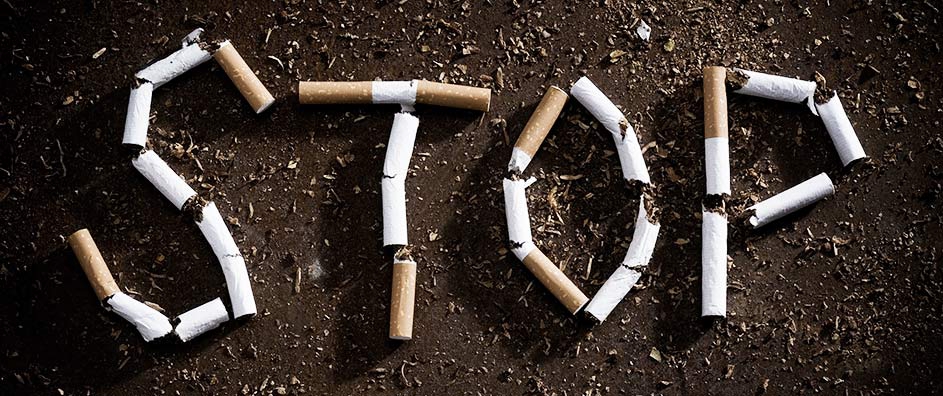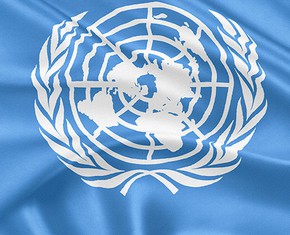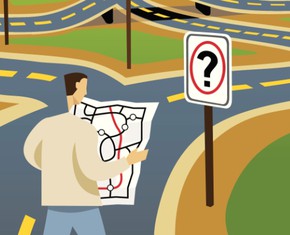The views expressed in our content reflect individual perspectives and do not represent the authoritative views of the Baha'i Faith.
…in the sight of God, smoking tobacco is deprecated, abhorrent, filthy in the extreme; and, albeit by degrees, highly injurious to health. It is also a waste of money and time, and maketh the user a prey to a noxious addiction. …this habit is therefore censured both by reason and experience, and renouncing it will bring relief and peace of mind to all men. Furthermore, this will make it possible to have a fresh mouth and unstained fingers, and hair that is free of a foul and repellent smell. – Abdu’l-Baha, Selections from the Writings of Abdu’l-Baha, p. 147.
For years I worked as a public health activist, inspired in part by this quote from the Baha’i writings. That experience battling the tobacco industry taught me a great deal about what happens when science and money collide.
It all started when health care experts, physicians and research scientists in the western world began to actually discover the effects and add up the costs of tobacco-related illnesses, and realize what an enormous human toll they took. At the time I served on the board of the American Heart Association, and as the media spokesperson for the non-profit trade association that represented all the hospitals in Southern California. In my work I helped conduct and then release a large, multi-hospital study of respiratory diseases and myocardial infarctions (heart attacks). The researchers thought we’d find that Southern California’s infamous smog caused most lung and cardiac illness. But instead, we learned that the vast majority came directly from smoking–or from breathing secondhand smoke.
This scientific finding led us down a path none of us would have predicted.
After we learned the results, a small group of people involved in that study decided to begin opposing the enormous financial power of the tobacco industry, who we had started to see as merchants of death. I know it’s hard to imagine now, in the relatively-advanced 21st century, but at the time people could and did smoke just about anywhere–on airplanes, trains and buses, in restaurants, in elevators, in all public buildings and in the workplace. We set out to see if we could change that, by trying to restore the basic human right to breathe clean air. Several of us started campaigns to ban smoking in restaurants and public places, and others participated in local and regional efforts to ban smoking. We sponsored and ran a large California ballot initiative to tax tobacco and expend the revenue on anti-smoking and health care programs. Many physicians signed up for the effort, and worked hard to oppose tobacco. My sister, who was a flight attendant at the time, got involved in an international campaign to ban smoking on airplanes. A movement had begun.
The tobacco industry, as you might imagine, didn’t react well. They first questioned, challenged and denied the science on secondhand smoke. Their paid “experts” said the scientific evidence was “inconclusive.” When that didn’t work they spent hundreds of millions of lobbying and advertising dollars to try and defeat the nascent tobacco control movement. They ran campaigns about “the freedom to smoke,” accusing the anti-tobacco forces of trying to restrict individual liberty. They even claimed that more taxes on tobacco would result in higher crime. Basically, they tried everything, but very little of what they did actually worked. It wasn’t easy, but eventually the scientific findings and the increasing momentum of the scrappy anti-tobacco movement overwhelmed one of the richest industries in the world, and almost every measure we fought for started to win and get implemented.
Today just about everyone knows that secondhand smoke kills people, and global tobacco use has become much less prevalent as a result of the activism unleashed by that fact. Estimates say worldwide anti-tobacco campaigns have saved millions of lives during the past two decades, and reduced tobacco use dramatically. It turns out that smoking restrictions also have an immediate positive effect on heart attacks, lowering their incidence between 15-33%–even among those who don’t smoke.
 But today we see another, strikingly similar and even more massive campaign to question the established science which threatens a major commercial industry: the climate change battle.
But today we see another, strikingly similar and even more massive campaign to question the established science which threatens a major commercial industry: the climate change battle.
Now the entire planet smokes, releasing massive amounts of carbon into the atmosphere, and that secondhand smoke threatens the health of the world and all of its people far into the future.
Global energy industries, especially the purveyors of oil and coal, have now taken on the role of the tobacco industry, by attempting to convince us that climate science is somehow unsettled or unclear. Fueled by multi-million dollar media campaigns that stretch across the political, social and policy landscape, those forces have marshalled enormous financial resources, allies and arguments to convince us to do nothing, all so they can continue to reap enormous profits.
Many thinkers and writers have begun to see the parallels between the two public health and policy campaigns. One of the most well-known—biologist, science historian and Harvard professor of Earth and Planetary Sciences Naomi Oreskes–recently co-wrote (with Erik Conway) a powerful book called Merchants of Doubt: How a Handful of Scientists Obscured the Truth on Issues from Tobacco Smoke to Global Warming.
In Merchants of Doubt, Oreskes and Conway conclusively show that a tiny group of three American physicists have repeatedly mounted a war on science, joining forces to try to discredit established and accepted scientific facts, disseminate false information, spread confusion, and promote doubt. In multiple cases these three men partnered with free-market think tanks and private corporations to publicly challenge the scientific consensus on tobacco regulation, on acid rain, on the hole in the ozone layer created by industrial greenhouse gases, and now on climate change. “This battle,” Oreskes has said, “isn’t about science—it’s about economics.”
But as this deliberate, well-funded effort to obfuscate and confuse has occurred, a nascent, grassroots counter-movement has also coalesced—bringing together a broad global coalition of churches, temples, mosques, faith communities, environmental and indigenous groups and concerned individuals determined to speak for the Earth itself. That unifying global movement, Baha’is believe, can help usher in the coming-of-age of the entire human race. It sees no conflict between science and spirituality. It emphasizes our sacred trust to protect and preserve our planetary home. It firmly opposes the materialism and the rapacious commercial interests that damage and threaten the biosphere. It stands for worldwide cooperation, and it signals our gradual maturation as a species:
A new chapter in the life of the planet has been opened. Humanity has attained its maturity, and… has awakened to the fact that it must put away the childish things which seemed necessary in the day of the “survival of the fittest.” …This is a new cycle of human power. All the horizons of the world are luminous and the world will become indeed as a garden and a paradise. It is the hour of unity of the sons of men and of the drawing together of all races and all classes. – Abdu’l-Baha, Divine Philosophy, p. 12.
You May Also Like
Comments

















240 pages the first page reads
"Stop smoking"
The other 239 pages are blank...